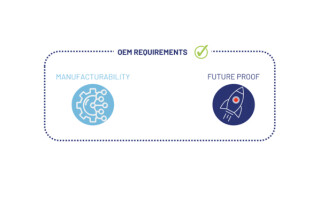Do You Have a S.M.A.R.T. Tool for Your SSD?
April 02, 2019
Story

S.M.A.R.T. (Self-Monitoring, Analysis and Reporting Technology) is a monitoring system included for SSDs that detects and reports on various indicators of drive reliability.
Do you know how long your SSD can last? Because the data are priceless and the symptoms of a SSD are very difficult to detect before the end of life. Once the problem occurs, sometimes SSDs enter read-only mode, but they can no longer process data. However, sometimes you will never see it again. Knowing the SSD real-time status and backing up the data before the disaster occurs is essential. People must go for health checks every year, and SSDs are no different. Regular operation checks will ensure that SSDs will continue to function properly.
S.M.A.R.T. (Self-Monitoring, Analysis and Reporting Technology) is a monitoring system included for SSD that detects and reports on various indicators of drive reliability, with the intent of enabling the anticipation of hardware failures. When S.M.A.R.T. data indicate a possible imminent drive failure, software running on the host system may notify the user so stored data can be copied to another storage device, preventing data loss, and the failing drive can be replaced while maintaining the data integrity.
Most Flash-based products support S.M.A.R.T. function, and can support S.M.A.R.T. utility tools for monitoring and analyzing. All the S.M.A.R.T. information for different controllers or devices can be read from commodity test bench software, since ATA commands are standard as association requests.
In the S.M.A.R.T. function, you can detect the status of the SSD, including ECC error, erase count, temperature, SSD life remaining, etc,. as indicated in the table below.
Do not forget to install necessary S.M.A.R.T. tools to check the status of your SSD any time to ensure the health of your system.




